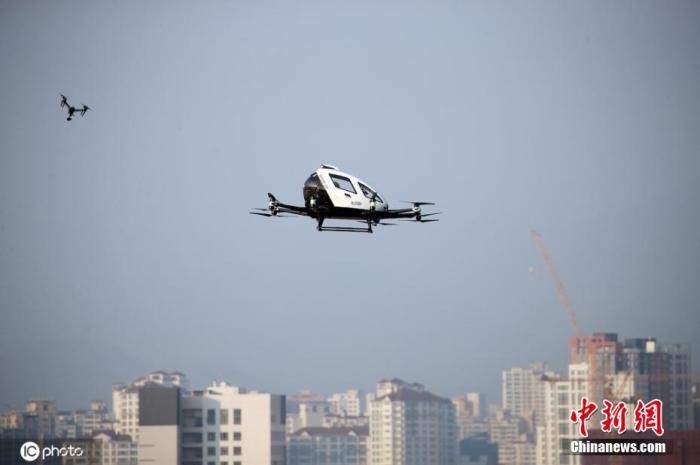China News Service, Seoul, November 18th (Reporter Zeng Nai) As the "non-contact" industry is booming, South Korea is vigorously developing robot education and drones.
Since the outbreak of the epidemic this year, many traditional industries in South Korea have been under pressure.
In the first and second quarters of this year, South Korea’s actual gross domestic product (GDP) grew negatively; the Bank of Korea lowered its GDP growth forecast for this year for three consecutive times.
In order to alleviate the impact of the epidemic, the South Korean government has launched an economic development plan called the "Korean New Deal". It plans to invest more than 100 billion U.S. dollars within 5 years, focusing on promoting the digital economy and green economy.
On September 29, local time, at Suseo Station in Seoul, South Korea, robots were disinfecting the cars to prevent the spread of the new crown virus.
Intelligent robots will be more widely used in daily life.
"If you want to talk to a friend, please press the button..." The reporter saw at an elderly cultural center in Mokdong, Seoul, a group of robot "teachers" were teaching senior residents to use social software.
These artificial intelligence robots carry special programs that can interact with people in real time for a long time.
This is a non-contact education environment created on a pilot basis in Seoul.
Han Duihuan, director of the business development department of the Seoul Digital Foundation, told reporters that the epidemic has restricted face-to-face teaching, but the use of robots not only reduces the risk of infection, but also enables repeated teaching, which is very suitable for the elderly.
He said that he plans to promote the service free of charge to 3,000 senior citizens in Seoul by the end of this year; and gradually enrich functions, such as the development of anti-phone fraud education software.
On November 16, local time, in Daegu, South Korea, an "air taxi" conducted a test flight to demonstrate and test the application of air flight technology.
Image source: ICphoto
The drone industry is also on the fast lane.
In November, more than 300 drones created a light show in the night sky of Seoul to pay tribute to the medical staff of the epidemic.
In Seoul, Daegu and other places, test flights of "air taxis" are also continuing.
Kim Sang-do, head of the Aviation Policy Office of the Ministry of Land, Infrastructure, Transport and Tourism told reporters that this is not only a visual feast, but also to improve core technologies such as autonomous flight, which will be promoted to more industry applications in the future.
According to the plan of the Ministry of Land, Infrastructure, Transport and Tourism, 10 “drone demonstration cities” will be built in South Korea to promote the entry of drones into logistics and distribution, smart cities and other fields; subsidies will be provided to some enterprises to vigorously support local drone companies.
Public information shows that as of June this year, the scale of the Korean drone industry exceeded 450 billion won.
(Finish)

